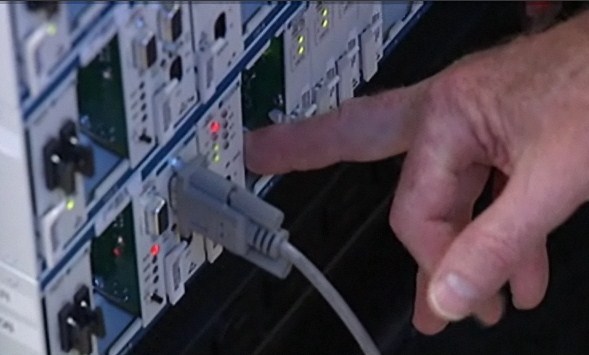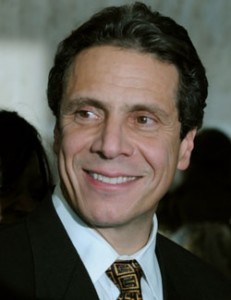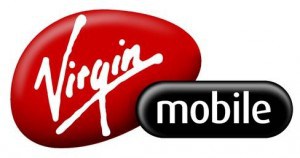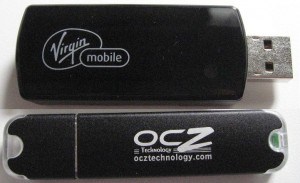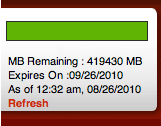After 18 years representing the people of Gaston County, N.C., Senator David Hoyle closed out his ninth and final term in the North Carolina Senate with a disgraceful admission: He allowed the state’s largest cable company, Time Warner Cable, to draft legislation in his name to thwart competition and allow skyrocketing cable and broadband bills for his constituents. Worse yet, he admits he’s proud he did it.
Hoyle, who calls himself a “pro-business Democrat,” ignored his own constituents’ interests when he introduced legislation earlier this year that would effectively curtail municipal broadband projects across the state from providing enhanced broadband at significant savings for residents.
Stop the Cap! has covered Hoyle’s water-carrying for the cable and phone companies since he announced his pro-cable legislation and accompanying municipal broadband moratorium. Our regular reader Tim sent word Hoyle blurted out whose interests he really represented on a Charlotte TV newscast last week. Not having to answer to voters in a future election gave Hoyle remarkable courage to tell viewers he carried more water for Time Warner Cable than Gunga Din:
When the I-Team asked him if the cable industry drew up the bill, Senator Hoyle responded, “Yes, along with my help.”
When asked about criticism that he was “carrying water” for the cable companies, Hoyle replied, “I’ve carried more water than Gunga Din for the business community – the people who pay the taxes.”
Evidently Hoyle forgot his constituents pay taxes too, along with ever-increasing bills from Time Warner Cable. With Hoyle’s help, North Carolina’s phone and cable companies hoped to limit competition, guaranteeing future rate increases and higher bills — a Hoyle Tax that consumers across the state would pay indefinitely.
Last December, Hoyle was more high-minded when announcing his imminent retirement from office:
[…]Having had the honor and privilege to serve my community and state in every way that has been asked of me, beginning 45 years ago as mayor of Dallas, it is now the time and the season to welcome the next phase of my life.
After much thought, I have made the difficult decision not to seek re-election to the Senate. While I will not seek re-election, please be assured that I will serve the rest of my term with the same diligence, dedication and integrity with which I have served from my first election. Public service has always been a central part of my life and my commitment to our community and our state remains strong.
 Hoyle’s actions prove that his diligence, dedication, and integrity only extend to the businesses that heartily supported him while in office. That pact protected each others’ interests while trampling yours.
Hoyle’s actions prove that his diligence, dedication, and integrity only extend to the businesses that heartily supported him while in office. That pact protected each others’ interests while trampling yours.
Despite Hoyle’s dogged efforts to place a moratorium on municipal broadband projects in the state, even going as far as to suggest fiber was “obsolete,” several of his colleagues thought better and blocked the attempt.
For consumers in Salisbury, not too far from Charlotte, the good news is fiber optic broadband will outlast memories of a senator working at the behest of the cable industry.
Fibrant, the city-owned fiber broadband provider, will commence beta testing of its new service in September. It will deliver broadband service 10 times faster than that offered by Time Warner Cable and AT&T U-verse at highly competitive prices. Standard 15Mbps service — upstream and downstream — will cost 10 percent less than the competition’s slower services.
Salisbury has spent $50 million to construct the network using bond money that will be paid back from revenue earned by the system.
For Hoyle, spouting traditional industry talking points, that’s a recipe for disaster. Considering Hoyle raked in substantial contributions from Time Warner Cable, Sprint/Nextel PAC, and telecom lobbyist Parker, Poe, Adams, and Bernstein PAC, among others, voters may wonder whether Hoyle’s anti-municipal broadband declarations were also written by the telecom industry.
Opponents like Hoyle declare earlier municipal broadband efforts have been financial failures for cities. If so, why the industry fulminates about such “failures” that would hardly threaten them is more than a little curious.
Other opponents claim government cannot do anything right, so they should stay out of the private sector cable business.
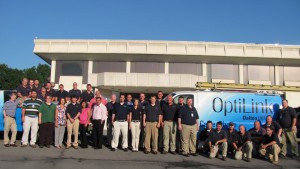
This "financial failure" in Dalton, Georgia has cornered 70% of the residential market offering superior service, and keeps $1.5 million in monthly revenues at home in northwest Georgia.
Yet residents in decidedly red-state Dalton, Georgia had more than enough of their free market cable system — Charter Cable. The community of 38,000 supported a move in 2003 by Dalton Utilities to build a publicly-owned alternative. They couldn’t install service fast enough, and today Dalton Utilities’ Optilink brings in $1.5 million in revenue every month which stays in Dalton. The local government option today reaches nearly 70 percent of the residential market and last week was voted 2010 #1 Internet Provider in the Daily Citizen’s Readers’ Choice Awards for the third year in a row.
Opelika, Alabama also rejected the “government can do nothing right” talking point in a referendum to support a fiber to the home network for their community as well.
In reality, although no government is perfect, Americans do trust local government to provide safe drinking water, put out fires, and arrest criminals — all incredibly vital services. As broadband increasingly joins electricity, gas, phone and water as an essential utility, providing it at unregulated monopoly pricing just isn’t going to cut it any longer.
Hoyle has a future as a paid mouthpiece for the industries he befriends, but more importantly, he’s represents s a teachable moment. The next time an elected official scoffs at the notion he’s bought and paid for by the companies who write him generous campaign contribution checks, just remember Senator David Hoyle… North Carolina’s first senator from Time Warner Cable, but almost certainly not the last.
[flv width=”432″ height=”260″]http://www.phillipdampier.com/video/WCNC Charlotte Salisbury to test fiber-optic cable system 8-24-10.mp4[/flv]
WCNC-TV in Charlotte got Sen. David Hoyle’s remarkable admission that Time Warner Cable wrote the bill he introduced to stop cable competition for North Carolina consumers. (3 minutes)


 Subscribe
Subscribe



